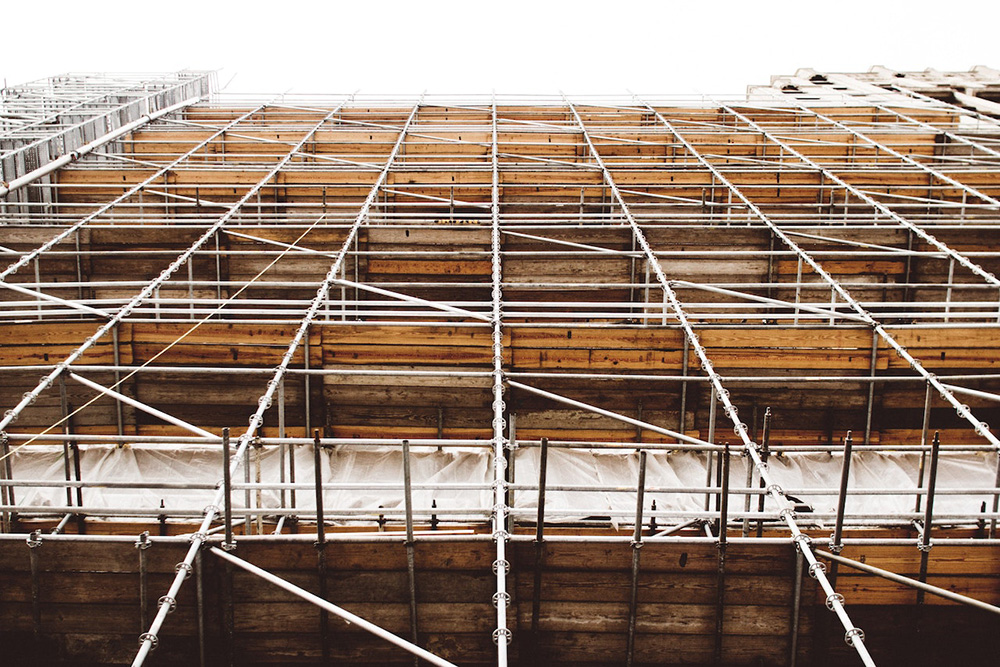
In 2020, approximately 165,300 construction workers suffered non-fatal on-the-job injuries in the United States. That same year, 1,008 construction workers lost their lives in fatal work accidents. The reality of working in the construction industry is dangerous, and the people responsible for building our homes, repairing roads, and improving infrastructure face a real and lasting threat every time they show up to work.
One of the most pervasive safety risks involves objects falling from one height to another. Let’s take a more in-depth look at the danger of falling debris at construction sites and what that can mean for the future of those who are injured.
The Top 4 Dangers of Falling Debris at Construction Sites
Even with proper head protection, a significant or heavy blow to the head can result in real and lasting physical harm for victims. While a variety of injuries and outcomes can occur, the following are four of the most common outcomes associated with falling debris.
Traumatic Brain Injuries
A traumatic brain injury (TBI) is a form of brain dysfunction typically “caused by a forceful bump, blow, or jolt to the head or body, or from an object that pierces the skull and enters the brain.” Depending on the cause of the injury, a TBI may be categorized as either penetrating or non-penetrating.
Sometimes referred to as an open TBI, a penetrating TBI occurs when an object has breached the skull and entered brain tissue. These types of TBIs typically only damage a specific part of the brain.
A non-penetrating TBI (also called a closed head injury) is the result of external force on the head that does not breach the protective barrier of the skull. Instead, the force causes the brain to move and jerk around within the skull, potentially causing damage to multiple parts of the brain.
A TBI can also be considered primary or secondary based on the onset of symptoms. A primary TBI involves the immediate onset of symptoms and danger to the victim. A secondary TBI may involve the development and worsening of symptoms over days or weeks as the brain engages in a reactive process to the initial trauma.
Falling debris on a construction site is a serious risk factor for the development of TBIs.
Broken Bones
Our bones are probably both stronger and weaker than most people realize. Capable of standing up to the intense labor associated with construction work, our bones can also be broken by something as simple as trying to catch ourselves while falling on a hard surface.
When a falling object, such as a tool, piece of concrete, brick, blank of wood, or other material strikes a person in the arm, leg, hand, foot, or any other part of their body, it’s possible for the force of the impact to break a bone.
Make no mistake about it: a broken bone is not a minor injury. There are often weeks or months of initial recovery time in which a limb is set in a cast while the broken bone heals. This period of time may be followed by rehabilitative therapy or additional treatments. Particularly severe breaks can require surgery.
Neck and Back Injuries
The impact of falling objects against a person’s neck or back can cause a variety of serious injuries to the neck and back, including:
- Cervical fractures
- Herniated discs
- Cervical dislocation
- Bulging discs
- Pinched nerves
- Torn ligaments
- Spinal cord injuries
- Vertebrae fractures
The lifelong impact of an injury to the neck or back can be debilitating. Someone who has suffered a serious injury like any of those described above will not only require continual and ongoing medical care but will also be unlikely to continue working in construction in the future.
Losing a career path is a devastating experience. For some people, the emotional transition from one career to another can be just as overwhelming as dealing with the injury itself.
Death
Construction workers regularly work with heavy materials at significant heights. When a tool, material, or other object is not properly secured on a roof, scaffolding, or other structure, it can fall and hit workers below. In the most extreme cases, a falling object can strike a worker with sufficient force to cause a fatal injury.
The unexpected loss of a loved one can have a profoundly negative impact on surviving family members. While we know that nothing could ever come close to replacing the life of a mother, father, sister, or brother, we recognize that financial compensation can help address tangible financial losses, allowing families to grieve and heal without worrying about how they will pay their bills.
In Kentucky, families may qualify for death benefits through the workers’ compensation system. These benefits can replace up to 75% of the victim’s average weekly wages.
Falling Debris Protection for Construction Workers
Construction companies are responsible for creating the safest possible work environments for their employees. Part of this responsibility involves hiring and employing foremen, who act as a liaison between the workers and the company, and who are responsible for maintaining worksite safety.
Some of the most effective practices that have been proven to protect workers from falling debris include providing personal protective equipment (PPE) and using:
- Debris nets
- Toe boards
- Tool cinches attached to harnesses
- Self-vulcanizing tape
- D-shaped tie-down rings
- Wristbands
- Canopies
- Catch platforms
Profits should never come at the expense of the safety of workers. Construction companies are responsible for shouldering the financial burden of these protective measures.
What To Do After a Construction Site Work Injury
If you’ve been injured on the job, you are entitled to benefits through the Kentucky workers’ compensation system. These benefits cover your related medical expenses, a portion of your lost wages, and any employment rehabilitation services you may require.
Navigating the complex labyrinth that is our workers’ compensation system is not easy, though. Deadlines, paperwork, and a high rate of denials come together to make it exceptionally difficult to secure the compensation to which you are entitled.
Peterson Law Office can help. To learn more about your rights after a workplace accident or injury from falling debris at a construction site, call or contact us online. We’ll schedule you for a free consultation at a time that works best for you.





